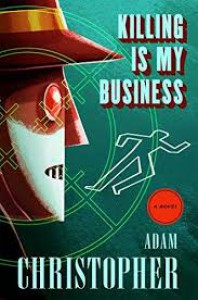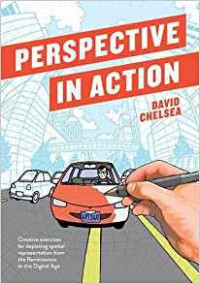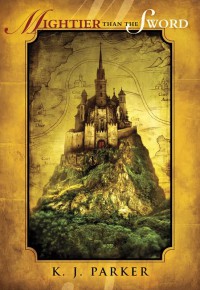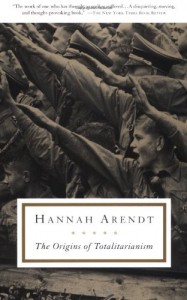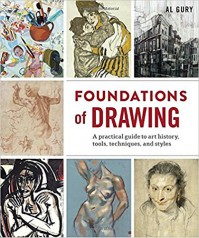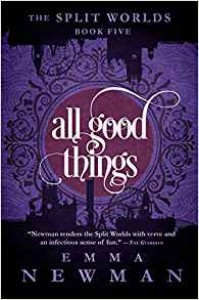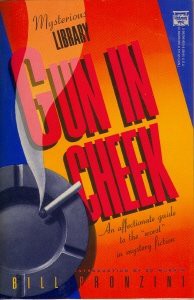
| For me, the best speculative fiction seamlessly weaves together novel ideas and perspectives while keeping me enthralled in a good story.Where the Stars Rise promises just that, providing a wealth of viewpoints that are woefully underrepresented in much of mainstream speculative fiction. The stories range from Melissa Yuan-Innes' "Crash," a futuristic story of a sixteen-year-old's experience on a moon colony, to Ruhan Zhao's "My Left Hand," a short tale of high energy physics, time travel, and fortune tellers, to Gabriela Lee's "DNR", a story of personal tragedy and memory set in a world shattered by climate change and terrible earthquakes. In this myriad of interesting stories, I think the one I found most memorable was Amanda Sun's gorgeously lyrical "Weaving Silk." In this short vignette, the main character and her sister are scraping together ingredients to make and sell onigiri. As they travel through a Japan wounded by both volcanic eruption and tsunami, she muses on the country's struggles to regain contact with a world that, before Japan was isolated by natural disaster, was itself enmeshed in incipient global warfare. The writing is packed with metaphor, haunting, and utterly gorgeous. A few of my favourite quotes: "We are all little cocoons, I think, as I look at the people in the train. We spin threads around ourselves, shutting others out as if we were the only ones struggling to survive. Hungry to survive, destined to die. And yet together, unravelled, our stories form yards and yards of beautiful silken thread." Each story was unique, but a few common themes wove them together. Perhaps the most common was a sense of difference and separation from the rest of society. For example, Ayla of S.B. Divya's "Looking Up" is hired for a journey to Mars as "one of our most diverse candidates" (sigh) but her cultural heritage combined with her physical disabilities and family history leaves her feeling isolated and adrift. The story is about forgiveness and finding a future while coming to terms with the past. In Diana Xin's "A Visitation for the Spirit Festival", Mrs. Liu finds herself revisiting her past when she travels to see her daughter who had quit her job in Silicon Valley to find her Chinese roots. A literal ghost becomes a metaphor for Mrs. Liu's complex relationship with her memories. "A Star is Born" by Miki Dare is told in a fascinating style, with alternating diary entries of an old woman with Alzheimer's who believes she can time travel to see alternate routes of her past interspersed with "timeline captures" of a Japanese girl dealing with tremendous prejudice in Canada during WWII. Like "Visitation", it deals with themes of tragedy, memory, and acceptance. Multiple stories centered around people with a foot in two cultures who feel that they belonged to neither. The most memorable for me was "Back to Myan" by Regina Kanyu Wang, where the protagonist is literally a fish out of water. When Kaya's oceanus planet is destroyed, the Union rescues her and brings her up as one of them, to the point of surgically modifying her fins into feet. Brought up to blend in, she goes on a mission to rediscover her roots and finds far darker secrets than she could ever expect. The theme of dual cultures is played straight in Vanilla Rice" by Angela Yuriko Smith, where the child of an internet bride grows up in a world that equates whiteness with worth and chooses to genetically modify her child to appear Caucasian. The child seeks to find a way "to belong in my world, not someone else's." Karin Lowachee's "Meridian" is a scifi take on adoption across cultures, where the protagonist is "saved" and, after a few rounds of foster ships, is eventually "adopted" into a pirate crew. Some of the stories deal with even more direct prejudice. In Jeremy Szal's "The DataSultan of Streets and Stars" the protagonist and his brother are forced to flee after their father was killed in an anti-Muslim pogrom. Years later, the protagonist is forced into stealing a djinn-bot (universal assistant) he had created in his previous career as a programmer and "dataSultan." "Rose's Arm" by Calvin D. Jim deals with cultural and socioeconomic barriers. In this futuristic world where "the poor pay with their bodies" is anything but metaphorical, Rose Ishikawa struggles seeks to help her ailing father and considers selling her eyes to get a mechanical arm. In Priya Sridhar's "Memoriam", Anish's droid father lands right in the middle of uncanny valley and unsettles religious neighbors. On of my favourite stories, E.C. Myers' "The Observer Effect", took the idea of being invisible out of the metaphoric sphere. It's a fun jaunt into an Incredibles-like world where the protagonist is positive that one of her coworkers is a retired superhero. It deals with expectations, casual prejudice, and the cultural invisibility of minorities and those with disabilities, all in an entertaining and amusing superhero costume. "The Orphans of Nilaveli" by Naru Dames Sundar also involves literal invisibility. The story takes place in a near-future Sri Lanka where everyone has implants that make the things they don't want to see invisible. Two adopted Tamil children grow up in a world that makes their people literally invisible and find themselves revolting against that blindness. Another common theme was leveraging cultural traditions, history, and folklore. The most memorable for me was "Decision" by Joyce Chng. Creepy and wild, it weaves together themes of gender fluidity with folklore of a young spider-jinn leaving the nest. "Moon Halves" by Anne Carly Abad is an interesting reimagining of Filipino folklore, where humans participate in a hunting rite that involves hunting and killing an immature Taung Asu (tree spirit.) "Spirit of Wine" by Tony Pi is short, entertaining yarn involving a prefectural exam and a wine spirit. "Minsoo Kang's "Wintry Hearts of Those Who Rise" reads like an early folktale with protagonists who outsmart the rich and greedy, but the story has a mildly disturbing bite at the end. Deepack Bharathan's "Udatta Sloka" is a reimagined origin story of a god that deals with change, death, and the destruction of the Indus Valley Civilization. "Joseon Fringe" by Pamela Q. Fernandes is an alternate history of Sejong the Great that also provides fascinating commentary on the divided Koreas. "The Bridge of Dangerous Longings" by Rati Mehrotra is less directly inspired by folklore. A fantastical tale in a futuristic island cut off from the rest of the world by a bridge that no one has come back from, it deals with themes of violence and rape. I think it might have packed more of a punch had it not answered its own mysteries. Last but not least, I found myself enjoying Fonda Lee's "Old Souls" as an echo of her wonderful Jade City. The protagonist can see the patterns of everyone's previous lives and wants to escape her own fate. The story is about choice, the need to forget and be able to start over, and patterns, personality, and what makes us innately ourselves. As one character says:
Overall, it's a very interesting collection well worth reading if you're interested in scifi and fantasy a little off the beaten path. ~~I received an advanced reader copy (with huge apologies for how long it took me to read and review) through Netgalley from the publisher, Laksa Media Groups, in exchange for my honest review. Thanks!~~ Cross-posted on Goodreads. |

 2
2










